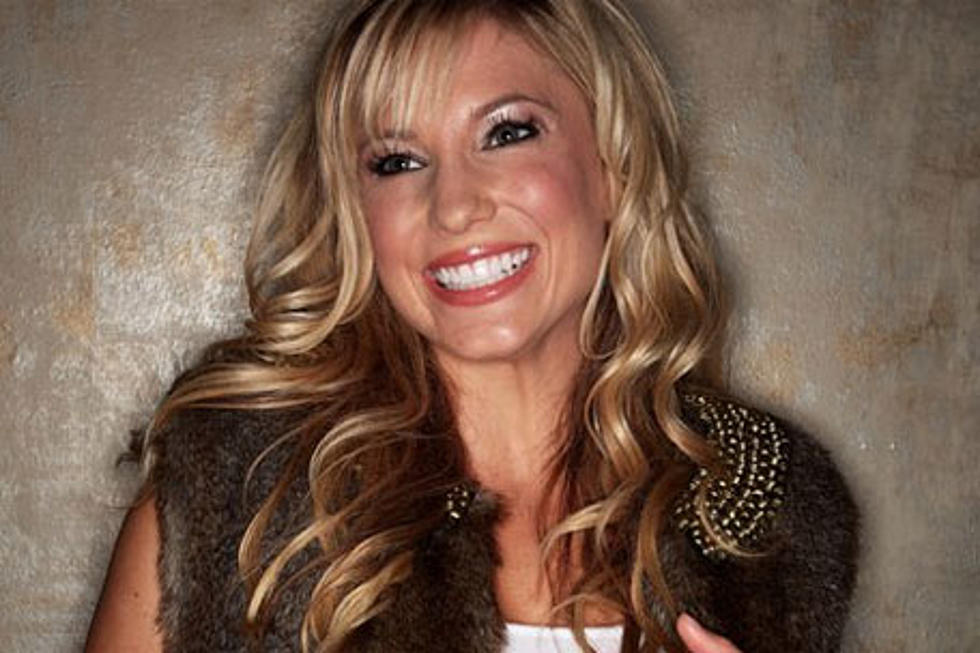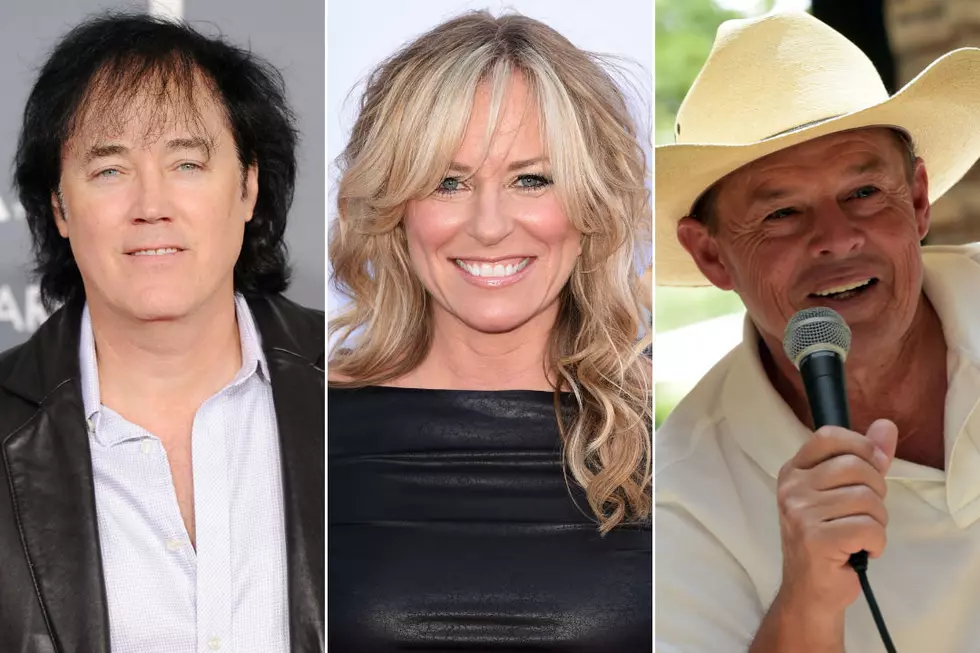
Julie Roberts Revisits Troubled Life in Search of Happy Ending
"Life is like a movie to me," says singer-songwriter Julie Roberts. "Everybody has their own movie that's playing out every day and you're writing it." While that may be true, not everyone is playing out a story that is being turned unto an actual movie. But that's just the kind of unusual circumstance that could only happen with someone like Julie.
A South Carolina native who moved to Nashville, got a record deal, earned critical acclaim for her debut album, then recorded another album and part of a third before being dropped by her record label, Julie's story to that point was one that could have described any number of country music hopefuls, and would hardly seem cinematic. As it turned out, however, there was more to the story before Julie ever scored a Top 20 hit in 2004 with "Break Down Here," and so much more to the story that by the time the film was first being written, a couple of major, life-changing events were not even addressed (one because it hadn't even happened yet).
The Boot sat down with Julie for a series of in-depth conversations during which the blond beauty shared candid recollections of her life. Last week, she revealed how she stays healthy, in spite of having been diagnosed with Multiple Sclerosis in 2006. This week, Julie shares details of the made-for-TV movie that began being written about her more than a year before the 2010 Nashville flood that destroyed her home. In 2009, Julie moved to Los Angeles to work with Tim Rickman, the Oscar-nominated screenwriter of "Coal Miner's Daughter." Although the film was being made for the Lifetime network, where it will ultimately air is still undetermined, much like the movie's ending itself.
How did the process of working with Tom begin?
I lived out there a year and he came out there and spent about six months. He would spend time with my whole family. He was pulling a lot of stories that I had shut away my whole life, like with my dad. He was really good at it. I didn't realize the things that I hid my whole life just started to resurface. I was reliving them when I would speak with him. It was therapy for me. He would meet with us all separate. He just had a way of getting us all to open up so that he could get inside our house and write what he could see. Mama had remembered a lot of things about my life that I had shut away. But when she would say it, I would say "I remember that." It was just living with an abusive alcoholic. It was nothing I ever shared or talked about before in my life. I believe that living through that, seeing what Mama lived through, that's why Mama turned to country music so much and why we would leave home all the time and go live with my grandmother. On the drive there, we would turn the country music up really loud because that was our escape from my dad's really loud rock 'n roll music. I think that's why I like some rock music, too, and why I like loud music, is because of him.
So music was literally your way to escape?
I started singing a lot of weekends, and we would leave home when we could because we didn't want to live there. So Tom helped me figure out what parts of that story I wanted to tell in this movie. We told him everything we lived, us going into bars and seeing him dance with other women and us bringing him home. Not knowing why we couldn't have friends come over. All of those things that I had never been able to talk about, for some reason with Tom I felt comfortable. My whole mission was to get her out of that house and wherever I was, and I knew I wanted to get to Nashville. That's why I worked so hard at University of South Carolina for two years and got scholarships to come to Belmont. Mama took out loans so I could come to Belmont and I helped her get a job here. I was working as a receptionist for Luke [Lewis, then head of Julie's label, Mercury Records] and start working with [producer] Brent Rowan. I got my record deal, which is what I had always dreamed about was going to save Mama and me. And it truly did for a long time. We had the best years of our lives around "Break Down Here." We'd never been anywhere except the little festivals around the Carolinas where I would go sing. I took her as many places as I could with me because I always wanted to save her. It wasn't fair because she was such a good mom and she went into debt. She's still got credit card debt to this day because of the things she did for my sisters and me to try to help us. To help us believe in ourselves and to believe that we didn't have to settle for a life like that. When she was 50, she moved here and she was the happiest I've ever seen her in her life. She wore makeup again, lightened her hair and started caring about herself. She quit smoking. I had never seen her laugh. I always saw her cry.
As you started to realize this story was going to be told, how did you handle that?
I was very careful. I was nervous to tell the story because I occasionally still speak with my dad. But he signed off on it, he had to. That was what Lifetime needed so that they could tell the true story. So it was about that, going to Nashville, going on the road, doing all these fun things and having all these dreams. I still have a lot of dreams that I want for her and for me. But then life happens. God has this whole plan for your life and I believe he wanted my story to be more of a movie because it has definitely progressed since then [laughs].
That's certainly true! Even if the film doesn't air on Lifetime, will you add all the most recent events to the story?
Having MS is a big part of my story, the flood is a big part of my story. Working as an independent artist and trying to figure out how to reconnect with fans is a huge part. But I just need a really happy ending. I don't know if it's what I'm living, in never giving up, or if it's getting a new record deal or if it's playing shows, being on a bus again. Is that my ending? I don't know, I just have to trust that He knows what my ending is. And I leave that up to Tom because he's really brilliant, it's what he does. I'll leave it up to Tom and God! [laughs]
It would seem that in spite of everything, you're living something of a happy ending already. You're always so upbeat.
I don't always have good days. There's days where I'm wondering what's next for me. I'm just sitting at home. I want to be on a bus. How do I get back there? Now we're in an SUV that I've rented and I love it. I do want to get back on the bus! But when I was on the bus we would do our shows and then I would go back to my room and sleep. I never got to hear the guys in the band talk about their lives. I laugh so much, it's fun.
More From TheBoot



![Julie Roberts Talks MS on CNN’s ‘Human Factor’ [VIDEO]](http://townsquare.media/site/623/files/2014/06/Julie-Roberts.jpg?w=980&q=75)





